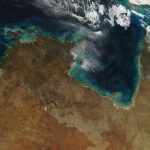 September 27, 2018 9:56 am
Published by Jenny Rislund
September 27, 2018 9:56 am
Published by Jenny Rislund
The Central American mid‐summer drought (MSD) is the decline in rainfall during the middle of the wet season over Central America, which has been shown to have strong effects on agriculture and bushfires in Costa Rica. The Madden–Julian oscillation (MJO) has been shown to influence Costa Rican rainfall on intra‐seasonal time scales, and therefore may be important to the MSD. This research aims to find the connection between the MJO and MSD.
 September 14, 2018 11:22 am
Published by Jenny Rislund
September 14, 2018 11:22 am
Published by Jenny Rislund
Heatwaves have increased in their intensity, frequency and duration. It is now well-established that heatwaves are not stand-alone events, but occur in the presence of other extremes, such as, droughts, extremely high atmospheric pressure, or teleconnections to other atmospheric phenomena. The PhD will undertake a novel examination of the attribution of heatwaves, coincident with other plausible extreme events.
 September 11, 2018 1:07 pm
Published by Jenny Rislund
September 11, 2018 1:07 pm
Published by Jenny Rislund
This paper shows that many models overestimate the interaction between hot and dry conditions in wet regions and therefore overamplify heat extremes. The study points to necessary model improvement to increase confidence in future projections of heat extremes.
 August 14, 2018 11:33 pm
Published by Climate Extremes
August 14, 2018 11:33 pm
Published by Climate Extremes
This research demonstrates how cloud processes, steep mountains, tropical coastlines, the daily changes in solar insolation and planetary-scale waves work together to cause large variations in the tropical heating that drives global circulation patterns. Many of these effects are under-represented in global climate models.
 August 14, 2018 8:56 pm
Published by Climate Extremes
August 14, 2018 8:56 pm
Published by Climate Extremes
The MAAT framework can be used to systematically run multiple model simulations to explore how different underlying model assumptions, hypotheses and parameters lead to predicted model behaviour and isolate the causes of model divergence.
 August 14, 2018 6:29 pm
Published by Climate Extremes
August 14, 2018 6:29 pm
Published by Climate Extremes
How does the connection between Antarctica and Australia change over time? This project will help us understand Australia’s long term climate history and the range of extreme rainfall Australia experiences by exploring this connection.
 August 14, 2018 6:16 pm
Published by Climate Extremes
August 14, 2018 6:16 pm
Published by Climate Extremes
What would happen if we suddenly warmed the ocean at the sea-surface? Would suddenly cooling it down cause an equal and opposite response? The student will work towards developing novel theories to describe the ocean’s response to extreme perturbations. These theories are needed to understand the ocean's role in transient climate change.
 August 14, 2018 5:59 pm
Published by Climate Extremes
August 14, 2018 5:59 pm
Published by Climate Extremes
This project will use output from a large ensemble of state-of-the-art climate models to examine changes to the Indian Ocean circulation and how it links to changes projected for the Pacific and Atlantic basins and surface winds.
 August 14, 2018 4:58 pm
Published by Climate Extremes
August 14, 2018 4:58 pm
Published by Climate Extremes
This project will use satellite and flux tower observations to characterise the response of Australian ecosystems to water stress. These data will then be used to evaluate how well the Australian climate model predicts droughts. The successful candidate will obtain skills in programming and analysis of spatial datasets and model outputs.
 August 14, 2018 4:32 pm
Published by Climate Extremes
August 14, 2018 4:32 pm
Published by Climate Extremes
This project will use one or more simplified climate model(s) to investigate the importance of the tropical stratosphere in modulating the effects of ENSO and the MJO on Southern Hemisphere climate. It can either involve the actual model setup and running, model output analysis, the review of current scientific knowledge and hypotheses, or a combination of these.










